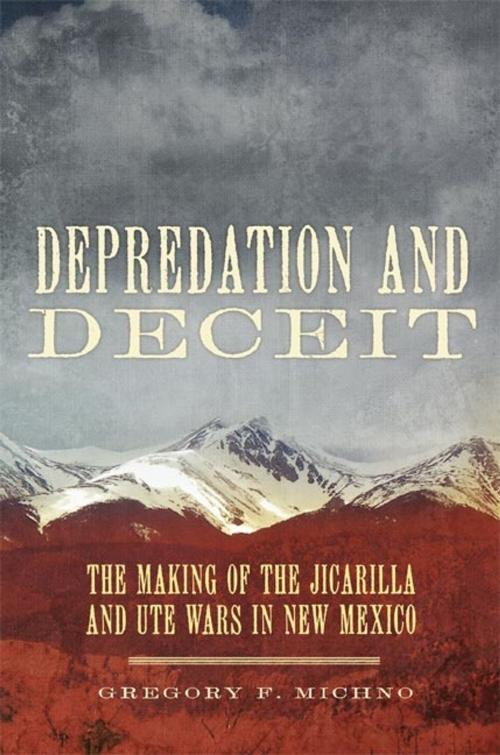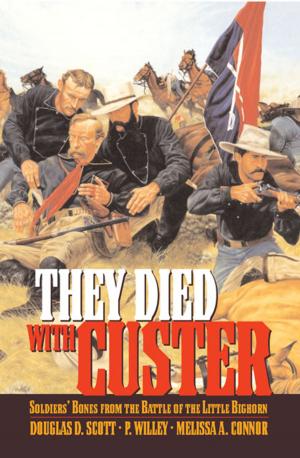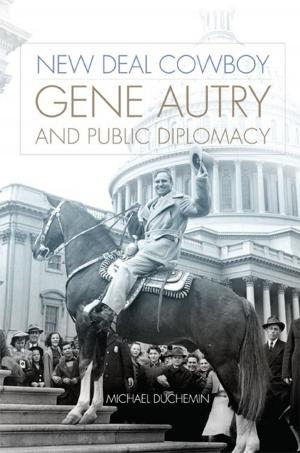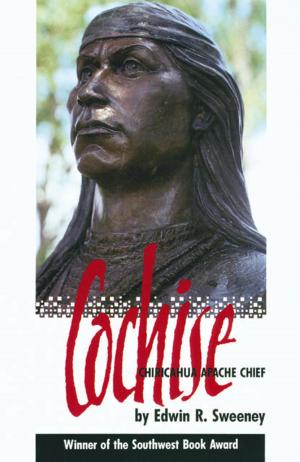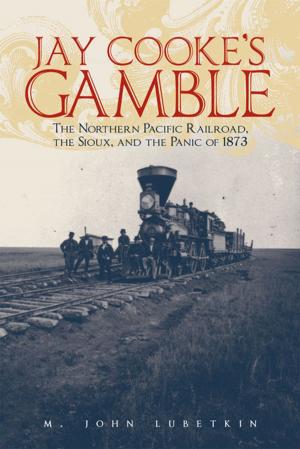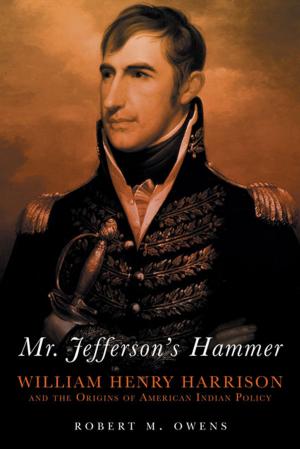Depredation and Deceit
The Making of the Jicarilla and Ute Wars in New Mexico
Nonfiction, History, Americas, Native American, Military, United States, Reference & Language, Law| Author: | Mr. Gregory F Michno | ISBN: | 9780806159430 |
| Publisher: | University of Oklahoma Press | Publication: | September 14, 2017 |
| Imprint: | University of Oklahoma Press | Language: | English |
| Author: | Mr. Gregory F Michno |
| ISBN: | 9780806159430 |
| Publisher: | University of Oklahoma Press |
| Publication: | September 14, 2017 |
| Imprint: | University of Oklahoma Press |
| Language: | English |
The Trade and Intercourse Acts passed by Congress between 1796 and 1834 set up a system for individuals to receive monetary compensation from the federal government for property stolen or destroyed by American Indians. By the end of the Mexican-American War, both Anglo-Americans and Nuevomexicanos became experts in exploiting this system—and in using the army to collect on their often-fraudulent claims. As Gregory F. Michno reveals in Depredation and Deceit, their combined efforts created a precarious mix of false accusations, public greed, and fabricated fear that directly led to new wars in the American Southwest between 1849 and 1855.
Tasked with responding to white settlers’ depredation claims and gaining restitution directly from Indian groups, soldiers typically had no choice but to search out often-innocent Indians and demand compensation or the surrender of the guilty party, turning once-friendly bands into enemy groups whenever these tense encounters exploded in violence. As the situation became more volatile, citizens demanded a greater army presence in the region, and lucrative military contracts became yet another reason to encourage the continuation of frontier violence. Although the records are replete with officers questioning accusations and discovering civilians’ deceit, more often than not the army was forced to act in direct counterpoint to its duties as a constabulary force. And whenever war broke out, the acquisition of more Indian land and wealth began the cycle of greed and violence all over again.
The Trade and Intercourse Acts were manipulated by Anglo-Americans who ensured the continuation of the very conflicts that they claimed to abhor and that the acts were designed to prevent. In bringing these machinations to light, Michno’s book deepens—and darkens—our understanding of the conquest of the American Southwest.
The Trade and Intercourse Acts passed by Congress between 1796 and 1834 set up a system for individuals to receive monetary compensation from the federal government for property stolen or destroyed by American Indians. By the end of the Mexican-American War, both Anglo-Americans and Nuevomexicanos became experts in exploiting this system—and in using the army to collect on their often-fraudulent claims. As Gregory F. Michno reveals in Depredation and Deceit, their combined efforts created a precarious mix of false accusations, public greed, and fabricated fear that directly led to new wars in the American Southwest between 1849 and 1855.
Tasked with responding to white settlers’ depredation claims and gaining restitution directly from Indian groups, soldiers typically had no choice but to search out often-innocent Indians and demand compensation or the surrender of the guilty party, turning once-friendly bands into enemy groups whenever these tense encounters exploded in violence. As the situation became more volatile, citizens demanded a greater army presence in the region, and lucrative military contracts became yet another reason to encourage the continuation of frontier violence. Although the records are replete with officers questioning accusations and discovering civilians’ deceit, more often than not the army was forced to act in direct counterpoint to its duties as a constabulary force. And whenever war broke out, the acquisition of more Indian land and wealth began the cycle of greed and violence all over again.
The Trade and Intercourse Acts were manipulated by Anglo-Americans who ensured the continuation of the very conflicts that they claimed to abhor and that the acts were designed to prevent. In bringing these machinations to light, Michno’s book deepens—and darkens—our understanding of the conquest of the American Southwest.
